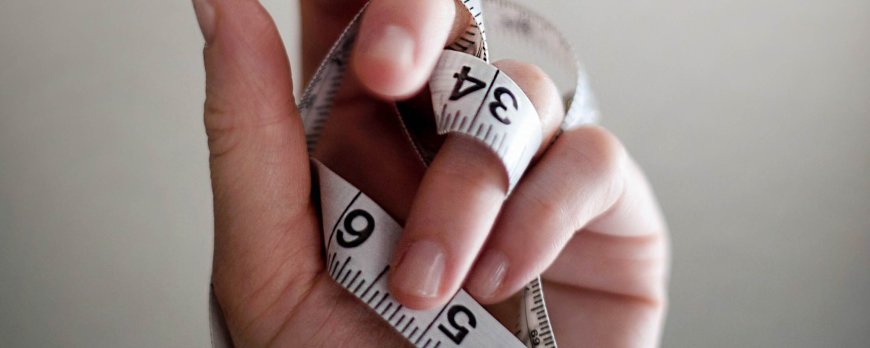Can vitamin D deficiency cause weight gain?
Explore the link between vitamin D deficiency and weight gain. Can vitamin D deficiency cause weight gain? Find out in our comprehensive guide.

Can Vitamin D Deficiency Cause Weight Gain?
Vitamin D deficiency has been suggested to have a possible link to weight gain, and in this comprehensive guide, we will explore the relationship between vitamin D deficiency and weight gain.
Key Takeaways:
- There is some evidence to suggest that vitamin D deficiency may be linked to weight gain.
- Overweight and obese individuals are more likely to have low vitamin D levels compared to those with a normal body mass index (BMI).
- Research on the topic is limited, and consuming higher amounts of vitamin D does not seem to significantly impact weight gain or loss.
- The lower vitamin D levels observed in overweight and obese individuals may be due to factors such as storing more vitamin D in fatty tissues or spending less time outdoors.
- Maintaining optimal vitamin D levels is important for overall health and can be achieved through sun exposure, diet, and supplementation.
The Link Between Vitamin D Deficiency and Weight Gain
Several studies have examined the potential relationship between vitamin D deficiency and weight gain, shedding light on the possible link between these two factors. Research has shown that individuals who are overweight or obese are more likely to have lower levels of vitamin D compared to those with a normal body mass index (BMI). However, it is important to note that the evidence on this topic is limited, and the impact of increasing vitamin D levels on weight gain or loss is not well-established.
One possible explanation for the lower vitamin D levels in overweight and obese individuals is the storage of vitamin D in fatty tissues. It is believed that excess fat may sequester vitamin D, making it less available for use by the body. Additionally, spending less time outdoors and limited sun exposure can also contribute to lower vitamin D levels.
While vitamin D deficiency has been associated with various health implications, its direct correlation with weight gain is still under investigation. It is crucial to maintain optimal vitamin D levels for overall health, which can be achieved through a combination of sun exposure, dietary sources, and supplementation if necessary. People at a higher risk of vitamin D deficiency include those with darker skin tones, limited exposure to sunlight, obesity, or specific medical conditions. Regular testing and monitoring of vitamin D levels can help determine if supplementation is needed to prevent deficiency.
It is important to approach the topic of vitamin D deficiency and weight gain with caution, as more research is needed to establish a clear and definitive link between the two. While maintaining adequate vitamin D levels is essential for overall health, it is equally important to consider other factors that contribute to weight gain, such as diet, exercise, and lifestyle choices.

Understanding the Effects of Vitamin D Deficiency on Weight
To understand how vitamin D deficiency may impact weight gain, it is important to examine the potential effects it has on the body. Vitamin D plays a crucial role in several physiological processes, including bone health, immune function, and inflammation regulation. When it comes to weight, vitamin D deficiency has been associated with certain effects that could potentially contribute to weight gain.
Here are some potential effects of vitamin D deficiency on weight:
- Reduced fat breakdown: Vitamin D deficiency may impair the breakdown of fat cells, leading to an accumulation of fatty tissue and potential weight gain.
- Increased insulin resistance: Research suggests that low levels of vitamin D may contribute to insulin resistance, a condition that can hinder the body's ability to regulate blood sugar levels and potentially promote weight gain.
- Altered appetite regulation: There is evidence to suggest that vitamin D plays a role in appetite regulation. Deficiency in vitamin D may disrupt the signaling pathways involved in hunger and satiety, potentially leading to increased food intake and weight gain.
While these effects provide insights into the potential relationship between vitamin D deficiency and weight gain, it is important to note that more research is needed to establish a direct causal link. Other factors, such as lifestyle choices, genetics, and overall nutritional status, also significantly contribute to weight gain.
If you suspect a vitamin D deficiency
If you suspect you may have a vitamin D deficiency, it is essential to consult a healthcare professional for proper testing and diagnosis. They can assess your vitamin D levels through a blood test and provide guidance on appropriate supplementation if necessary. Additionally, adopting healthy lifestyle habits, such as getting regular exercise, maintaining a balanced diet, and spending time outdoors, can help support overall health and potentially contribute to weight management.
The Correlation Between Vitamin D and Weight Gain
Research has indicated a correlation between lower vitamin D levels and weight gain, providing insights into the potential impact of vitamin D on body weight. Overweight and obese individuals are more likely to have low vitamin D levels compared to those with a normal BMI. However, it is important to note that the research on this topic is limited, and the relationship between vitamin D deficiency and weight gain is not well-established.
It is believed that the lower vitamin D levels observed in overweight and obese individuals may be attributed to other factors. For instance, adipose tissue (body fat) can store vitamin D, making it less available for circulation. Additionally, individuals with higher body weight may spend less time outdoors and therefore have reduced sun exposure, which is a primary source of vitamin D synthesis in the body.
While there is ongoing debate about the direct impact of vitamin D on weight gain or loss, maintaining optimal vitamin D levels is crucial for overall health. This can be achieved through various means, including moderate sun exposure, consuming foods rich in vitamin D such as fatty fish and fortified dairy products, and considering supplementation when necessary.
Factors that can influence vitamin D levels in relation to weight gain include:
- Reduced sun exposure
- Darker skin tones
- Obesity
- Limited dietary intake of vitamin D-rich foods
- Certain medical conditions that affect vitamin D absorption or metabolism
To determine if vitamin D supplementation is necessary to prevent deficiency and maintain optimal levels, it is recommended to consult with a healthcare professional and undergo regular testing and monitoring. While vitamin D deficiency may have health implications, its direct association with weight gain remains a topic of ongoing research and study.
Factors Influencing Vitamin D Levels in Relation to Weight Gain
Various factors can contribute to vitamin D deficiency and potentially influence weight gain, including symptoms associated with low vitamin D levels. Some of the key factors that can affect vitamin D levels in the body are:
- Limited Sun Exposure: The primary source of vitamin D is sunlight. Spending less time outdoors, particularly in regions with limited sunlight, can lead to lower vitamin D levels. This is particularly relevant for individuals who live in areas with long, dark winters or who have occupations that require them to spend a significant amount of time indoors.
- Dietary Intake: Vitamin D can also be obtained through certain foods, such as fatty fish (e.g., salmon, mackerel) and fortified dairy products. Low consumption of these vitamin D-rich foods or following a restrictive diet that eliminates these sources can contribute to vitamin D deficiency.
- Obesity: Studies have shown that individuals with higher body mass index (BMI) are more likely to have low vitamin D levels. It is hypothesized that vitamin D may be stored in fatty tissues, making it less available for use by the body. Additionally, obese individuals may spend less time outdoors or have dietary habits that are low in vitamin D-rich foods, further exacerbating the deficiency.
- Medical Conditions: Certain medical conditions can affect the body's ability to absorb or utilize vitamin D. For example, individuals with gastrointestinal disorders such as celiac disease or Crohn's disease may have difficulty absorbing vitamin D from food. Additionally, liver and kidney disorders can impair the conversion of inactive vitamin D to its active form.
Symptoms Associated with Low Vitamin D Levels
Low levels of vitamin D can manifest in various symptoms, although they are often nonspecific and can overlap with other health conditions. Some of the common symptoms associated with vitamin D deficiency include:
- Fatigue: Feeling tired or lacking energy can be a sign of low vitamin D levels. Fatigue can impact overall physical activity levels and potentially contribute to weight gain.
- Muscle Weakness: Vitamin D plays a role in maintaining muscle strength and function. Weakness or decreased muscle strength may be a symptom of vitamin D deficiency.
- Depressed Mood: Studies have suggested a possible link between vitamin D deficiency and mood disorders, such as depression. Mood changes can impact appetite, eating patterns, and potentially contribute to weight gain.
- Poor Bone Health: Vitamin D is essential for calcium absorption and bone health. Deficiency in vitamin D can lead to weakened bones, increasing the risk of fractures or osteoporosis.
It's important to note that while these symptoms may be associated with low vitamin D levels, they can also be indicative of other health conditions. Consultation with a healthcare professional is recommended to determine the underlying cause and appropriate treatment.

Vitamin D Deficiency, Obesity, and Weight Gain
Obesity has been identified as a potential risk factor for vitamin D deficiency, and it could play a role in the relationship between vitamin D deficiency and weight gain. Studies have shown that overweight and obese individuals are more likely to have low vitamin D levels compared to those with a normal body mass index (BMI). This correlation between obesity and vitamin D deficiency has raised questions about whether inadequate vitamin D levels contribute to weight gain or if weight gain itself leads to lower vitamin D levels.
One theory is that excess body fat may affect how vitamin D is stored and utilized in the body. It is believed that vitamin D may be stored in fatty tissues, making it less available for other essential functions. Additionally, individuals with obesity may spend less time outdoors or have limited sun exposure, which can lead to lower vitamin D production in the skin.
However, while the link between vitamin D deficiency and obesity is evident, the impact of vitamin D supplementation on weight gain or loss is less clear. Consuming higher amounts of vitamin D does not seem to have a significant effect on weight management. Instead, maintaining optimal vitamin D levels through a combination of sun exposure, diet, and supplementation is crucial for overall health.
It is important to note that vitamin D deficiency may have various health implications beyond weight gain. People at risk of vitamin D deficiency include those with darker skin tones, limited sun exposure, obesity, or certain medical conditions. Regular testing and monitoring of vitamin D levels can help determine if supplementation is necessary to prevent deficiency and maintain overall well-being.
The Role of Vitamin D Supplementation in Weight Management
While supplementing with vitamin D may help address deficiency, its direct impact on weight gain or loss remains uncertain. However, maintaining optimal vitamin D levels is important for overall health, and supplementation can play a role in achieving this. Here are some key points to consider:
- Vitamin D deficiency and weight gain: Studies have shown that overweight and obese individuals tend to have lower vitamin D levels. However, it is unclear whether this is a cause or effect of weight gain. More research is needed to understand the relationship between vitamin D deficiency and weight gain.
- The potential benefits of vitamin D supplementation: While the direct impact of vitamin D supplementation on weight management is not well-established, it can help address deficiencies and support overall health. Adequate vitamin D levels are important for bone health, immune function, and various other bodily processes.
- Other factors influencing vitamin D levels: Factors such as limited sun exposure, obesity, and certain medical conditions can contribute to vitamin D deficiency. In such cases, supplementation may be necessary to maintain optimal vitamin D levels.
- Best sources of vitamin D: The primary source of vitamin D is sunlight, as our skin synthesizes it when exposed to UVB rays. However, dietary sources such as fatty fish, fortified milk products, and supplements can also contribute to vitamin D intake.
It is recommended to consult with a healthcare professional or registered dietitian to determine if vitamin D supplementation is necessary for your specific circumstances. They can help assess your risk factors, perform blood tests to measure vitamin D levels, and provide personalized recommendations for supplementation, if needed. Remember, achieving and maintaining optimal vitamin D levels is just one aspect of overall weight management, and it should be approached alongside a balanced diet and regular physical activity.

Maintaining Optimal Vitamin D Levels for Overall Health
Maintaining optimal levels of vitamin D is crucial for overall health, and it may play a role in managing weight as well. While the direct link between vitamin D deficiency and weight gain is not firmly established, research suggests that low vitamin D levels are more prevalent in overweight and obese individuals compared to those with a normal BMI. However, it is important to note that simply increasing vitamin D intake does not seem to have a significant impact on weight gain or loss.
There are various factors that can contribute to low levels of vitamin D, including limited sun exposure, darker skin tones, obesity, and certain medical conditions. People at risk of vitamin D deficiency should consider testing and monitoring their vitamin D levels to determine if supplementation is necessary. Supplementation may be recommended if their levels are below the optimal range.
It is essential to maintain a healthy lifestyle to promote optimal vitamin D levels. Spending time outdoors, especially during peak sunlight hours, allows the skin to naturally produce vitamin D. Including vitamin D-rich foods in the diet, such as fatty fish, fortified dairy products, and mushrooms, can also help maintain adequate levels. When dietary sources and sun exposure are not sufficient, supplementation may be necessary under the guidance of a healthcare professional.
In summary, while the direct correlation between vitamin D deficiency and weight gain is not well-established, maintaining optimal vitamin D levels is crucial for overall health. Individuals should strive to incorporate sun exposure, vitamin D-rich foods, and possibly supplementation into their daily routine to prevent deficiency and promote overall well-being.
Conclusion
While there is some evidence to suggest a potential link between vitamin D deficiency and weight gain, further research is needed to establish a conclusive relationship.
Studies have indicated that individuals who are overweight or obese are more likely to have lower vitamin D levels compared to those with a normal BMI. However, it is important to note that consuming higher amounts of vitamin D does not appear to have a significant impact on weight gain or loss.
The exact reasons behind the lower vitamin D levels observed in overweight and obese individuals are not fully understood. It is speculated that factors such as the storage of vitamin D in fatty tissues and reduced sun exposure may contribute to this association.
While maintaining optimal vitamin D levels is crucial for overall health, the direct correlation between vitamin D deficiency and weight gain remains uncertain. To ensure sufficient vitamin D levels, individuals can focus on adequate sun exposure, incorporating vitamin D-rich foods into their diet, and considering supplementation if necessary. It is particularly important for those with darker skin tones, limited sun exposure, obesity, or certain medical conditions to be aware of their risk of vitamin D deficiency and take appropriate measures to prevent it.
































































































































